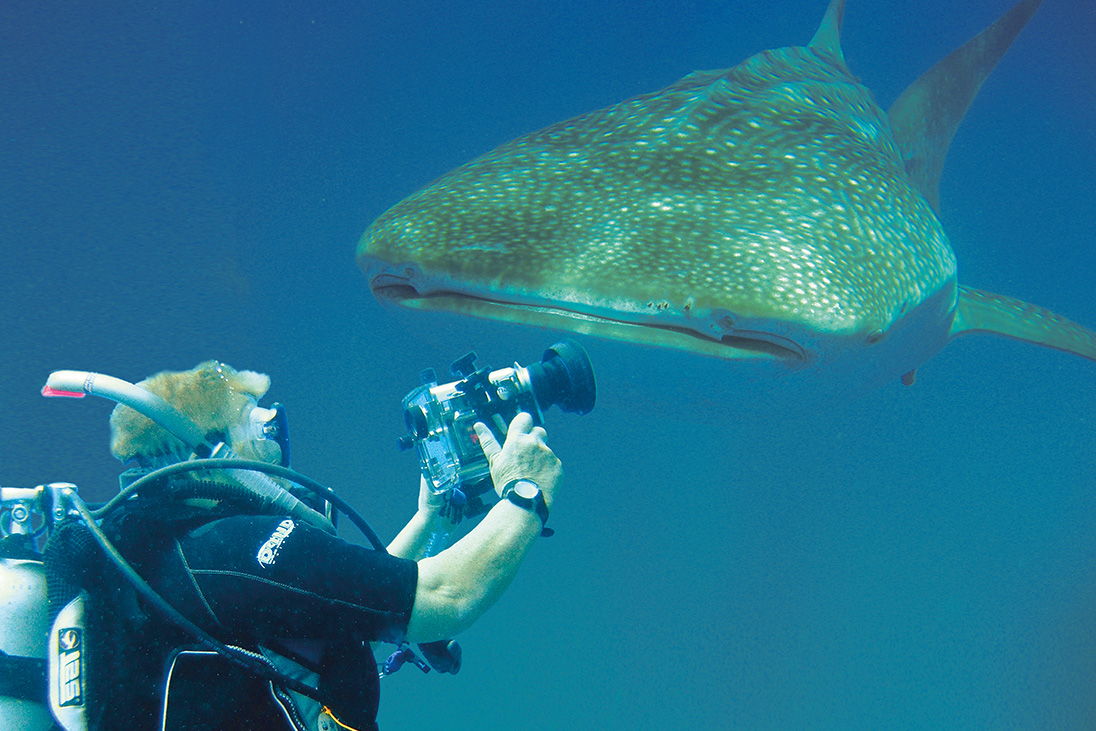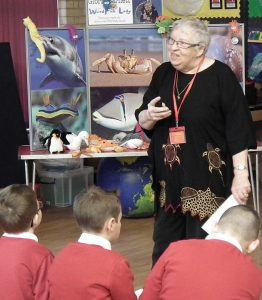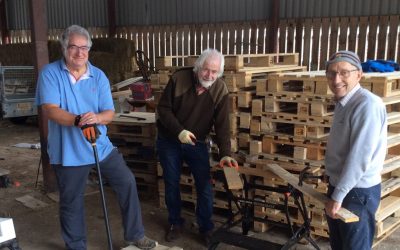Oceans have an enormous effect on all of our lives, and Rotarians listen as I tell them how vast the oceans are, what wonderful creatures live in the oceans and the critical role of oceans in climate change.
People believe we are destroying the planet – but I explain: ‘no, we are not destroying the planet – we are destroying the life on our planet’.
Listen to this article
Planet Earth will continue to exist for another 4.5 billion years, until the sun becomes a red giant star that expands and engulfs the planets Mercury, Venus and then the Earth. Planet Earth is not being destroyed, but life on this planet is in danger of extinction.
Over the past few hundred years, humans have poisoned our atmosphere with ‘greenhouse’ gases that warm the planet beyond the natural levels required for life to exist.
The oceans are vast expanses of water covering over 70% of the Earth’s surface.
Oceans are the largest ‘carbon sink’ on Earth, as they absorb the most carbon dioxide. But the quantity of CO2 in the oceans now is creating excess heat and the carbon dioxide gas is turning to carbonic acid, which kills life in the oceans.
We need to find improved ways to collect and store the carbon which already exists.”
It is plankton, an algae which live in the ocean, which supplies the most oxygen to our atmosphere. Our greatest problem is that plankton is dying because of excess heat and acidity in the water.
Oceans need to be cooler and have less acidic water so the plankton can grow.
Plankton provides 70% of the atmospheric oxygen, whilst seagrass, the only plant in the ocean, provides another 10% – so the oceans supply 80% of oxygen to our planet’s atmosphere.
Rain forests provide the other 20% and humans are even reducing this by stupidly cutting down rain forest trees too!


Gloria meeting a shark whilst diving
Ninety-nine per cent of all life on Earth requires oxygen to survive, so for the sake of all life on this planet, we must address how to look after the health of our oceans and rain forests if we are saving our essential oxygen supplies.
We must reduce plastic use too. There is no waste in the natural world, but humans have been acting in an unsustainable way for decades. Producing materials that don’t biodegrade! Where was all that plastic supposed to go?
Humans need to work towards net-zero waste everywhere in the world. It is possible to do this, and there are areas around the world where great success has already been achieved. Rotarians have been involved with a lot of this good work.
I believe Rotarians have a strong role to play in the future of life on our planet.”
The problem with climate change is not just the health of the oceans which are affected. We have threats from sea levels rising, extreme weather conditions such as excess heat, flooding, and stronger hurricanes.
Most of this will lead to problems with food shortages and increased migration as humans will no longer be able to exist in hot areas of the Earth.
When hearing all this, people begin to panic, as they develop strong emotions about the future. But rather than panic, I would like people to turn their emotional strength into action.
There are many things that we can do.
All of us firstly, as individuals, can do so much to reduce our own carbon emissions, such as not using fossil fuels, insulating our homes, reducing our transport emissions and changing our diets.
Once we have individually done as much as is possible then I believe we should share our successes – and what better than as Rotarians working in the community – to share information and help others reduce their carbon emissions too.
Working in the community to plant trees to offset carbon is just one example. Then let Rotarians share their knowledge of a better future with other countries. A world of Rotary working together!


Gloria speaking to the local school children about what she does.
We can’t do it all ourselves, of course. We require the Governments of the world to unite on policies that enable us to achieve a zero-carbon future – giving subsidies for insulating our homes or replacing gas-fired boilers for our heating – and what happens following the recent COP26 meeting in Glasgow will be essential to all of us.
Friends of the Earth has been telling everyone for decades that fossil fuels should ‘remain in the ground’ and if we look around then we will find technology has improved so much over recent decades that it is possible for humans to live without using any fossil fuels at all.
That would reduce the carbon dioxide which is being emitted. Then we need to find improved ways to collect and store the carbon which already exists.
I am a climate optimist and I will certainly continue my work to educate both young and old about the importance of oxygen production by oceans and fight against carbon emissions worldwide.
Technology is improving on an almost daily basis, and I firmly believe that humans can stop the rush into extinction of life – but we all need to work together and do it now!
I believe Rotarians have a strong role to play in the future of life on our planet.
After all, we Rotarians are people of action, aren’t we?


























































